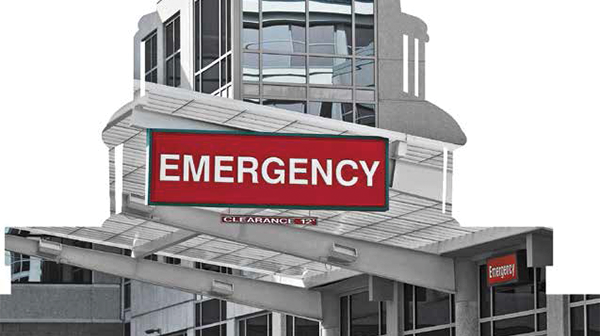
RM: Over time, we find that emergency medicine really prepares you for a lot of different journeys. What advice do you give to emergency physicians out there who are looking to expand their horizons? What sorts of experiences do you think they should have, or in which areas do you see great need for their talents?
Explore This Issue
ACEP Now: Vol 33 – No 03 – March 2014RH: One area that I certainly think about is mentorship. The word “mentor” is tossed around in academic medicine and in other disciplines, too. I’ve never found that to be extraordinarily useful unless there is an absolutely strong bond created by a give-and-take with someone who has vast experience beyond what you have. I’ve been blessed in that regard: Past Presidents of ACEP Dr. Jack Allison, Dr. John McCabe, and Dr. Dick Aghababian; executive directors of ACEP Colin Rorrie and Dean Wilkerson; Dr. Bob Bass; Dr. John Krohmer; [Dr. Martinez]; Dr. Jeff Runge certainly with his roles with DOT and the Department of Homeland Security; and my predecessors in my current role. If you can have more than one mentor, all the better. We pride ourselves on having short attention spans in order to multitask, but it’s important to stretch into some long-term problem solving. To give you the greatest breadth, start to go to hospital committee meetings, where it’s not like you have to make a decision in five minutes. People have talked to me about doing the federal government thing, and quite honestly, building a strong foundation in your primary discipline of emergency medicine is really important. You don’t build all those skill sets in a few years; it takes a while to get to some of them.
Over time, we find that emergency medicine really prepares you for a lot of different journeys. What advice do you give to emergency physicians out there who are looking to expand their horizons? –Ricardo Martinez, MD, FACEP
RM: To reflect on what you’re saying, a lot of this is experienced based, and as you mentioned earlier, that actually can be used to train very important and strong judgment that can be applied to other things besides just emergency medicine.
RH: Absolutely! It’s translating that skill set to many different kinds of not just disciplines but private, non-government, government positions—the whole spectrum. Engagement outside of the emergency department is not just leadership; it’s learning how to be a good member of hospital committees, your local community organizations like the Red Cross, EMS, fire, police, schools, and nonprofits in your local community. It doesn’t even have to be medicine related. Get to know your congressional staff. Providing a local-level perspective to congressional staffers is important for giving them a bigger picture of what’s going on in the universe, and that will help the discipline take care of patients better. Certainly at the state level, there are multiple opportunities within the discipline with ACEP state chapters and health care coalitions, and then on the national level, our conferences within the College are just extraordinary. I have watched a lot of people in our specialty shift after shift after shift. What I’ve observed is that there comes a branch point where you continue to do what you do for the rest of your career or there’s something that says to you, “You know? I’m tired of seeing some of the horror here, and there might be a way of approaching this beyond taking care of an individual patient at a time.” I think that’s a healthy thing for an emergency physician to realize—that there may be some other ways of doing what’s in the best interest of the patient.
Pages: 1 2 3 4 | Single Page




No Responses to “Emergency Medicine in the White House”